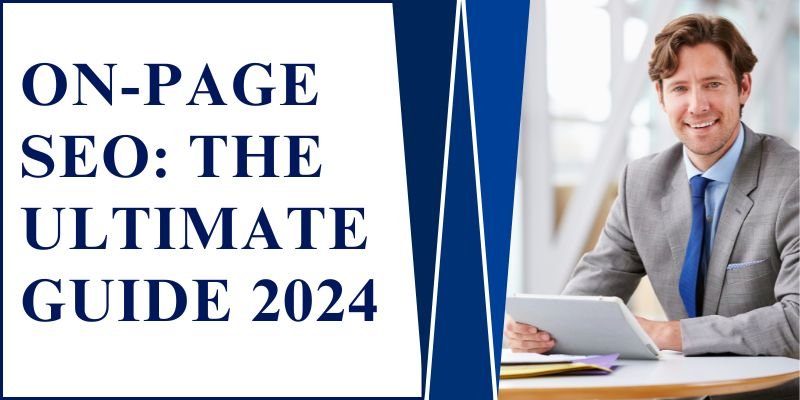


01
Jan
Willing to increase your website traffic organically? Then On-Page SEO is the right choice for you. On- Page SEO generates traffic on website globally through organic methods.
On-Page SEO offers you many options such as:
Here in this blog lets learn about On-Page SEO and its importance.
On-Page SEO also known as the On-site SEO optimizes the webpages and its content on both search engines and users. Through On-Page SEO, your website can rank higher on Google search engine and drive more organic traffic. You can prioritise content quality and improve core web vitals for On-Page SEO.
On-page SEO enables search engines to assess your website and its associated content in order to determine if a searcher's query is relevant to your site. Google is continually improving its algorithm to better comprehend a searcher's intent and produce search results that are relevant to that user's requirements. As Google's algorithm improves, so should your website.
It is critical that your website and its content, including what is visible to users (media, content, photos) and what is visible to search engines (metadata, HTML), adhere to the most recent standards utilized by corporations such as Google and Bing. This allows search engines to better comprehend your website and rank it accordingly.
On-page SEO is classified into three categories: content, HTML, and website structure. We'll examine each factor separately.
We all know: "Content is King."
SEO without it is like a new sports car without an engine: it may look lovely, but it won't go anywhere.
To enhance your on-site SEO, examine the following content factors:
1. E-A-T
Google weights your site based on E-A-T, which stands for expertise, authority, and trustworthiness.
It appears 135 times in the 175 pages of Google Search Quality Guidelines, indicating its importance in the search engine's algorithms.
While Google has only verified a few aspects of E-A-T (PageRank and links), it is widely acknowledged in the SEO community that on-page SEO play an important role in its assessments.
The most fundamental technique to inform them that your website's content answers a user's inquiry is via the language you employ. Pages containing the keywords from a query, whether in the text, headers, or both, are more likely to be relevant to the search.
You must understand what your target clients are looking for and develop content that incorporates those phrases. Doing research is usually a smart idea to ensure you don't miss out on any prospects.
Creating content that prioritizes search engines while also converting human visitors to your site is a kind of art.
Unless you've done it previously, it may be difficult to generate text that reads well while yet adhering to SEO best practices.
1. Emphasize readability: Your material should be understandable, allowing readers to rapidly understand the information they are looking for.
2. Don't overuse keywords: Also known as keyword stuffing, this approach was formerly utilized by unethical SEO specialists to trick the system; Google has a poor view of sites that overuse keywords. If you are discovered doing this, your page may be downgraded in the SERPs or possibly deleted completely.
3. Keep your phrases and paragraphs succinct: Keep your phrases and paragraphs brief to avoid driving people away.
4. Use a subheading: Subheads stand out due to their size, drawing the attention of individuals browsing your website. Use a sufficient quantity of your text to draw viewers down the page.
5. Use bulleted lists: This may seem too meta, but bulleted lists are an effective method to split down information into manageable bits. Use them when they make sense.
HTML, or HyperText Markup Language, is the code that structures your websites and content.
They instruct the user's browser on what and where to display content. It also informs search engines what your page is about and where you should be ranked.
Here are the on-page SEO HTML aspects you must consider: